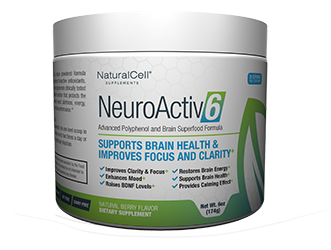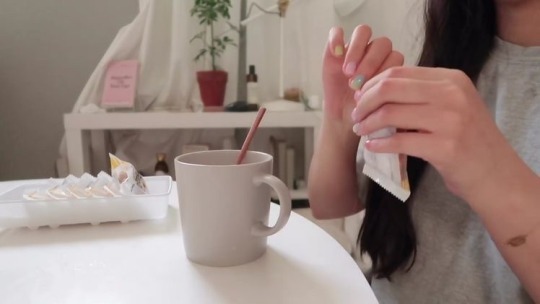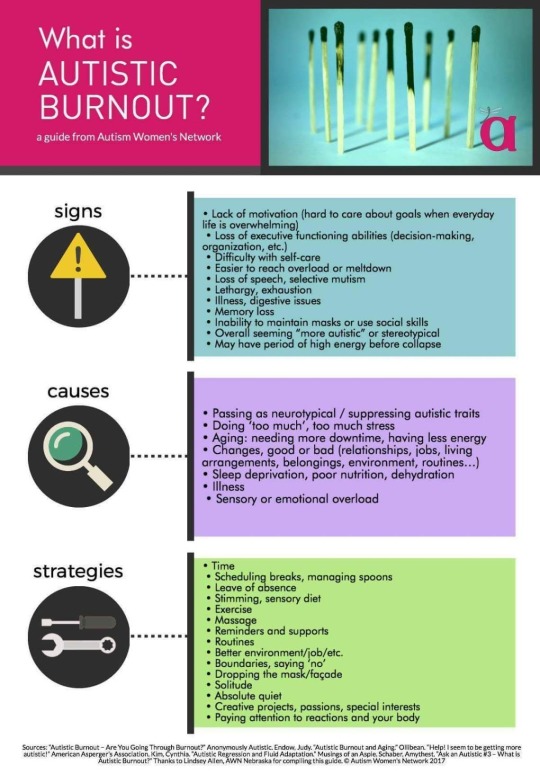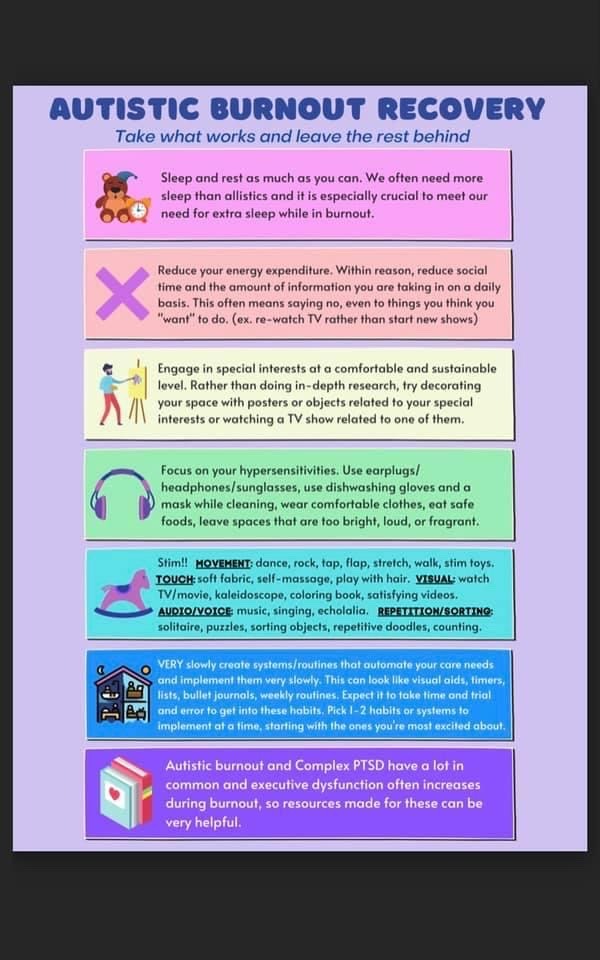#Increased Energy Levels and Reduced Stress
Text
NeuroActiv6
Supplements - Health

#Focus and a Natural Energy Boost: My Experience with NeuroActiv6 SupplementsSharper#I've always been interested in natural ways to support my brain health and cognitive function. That's why I decided to try NeuroActiv6 supp#a natural berry-flavoured drink mix. After using it for a few months now#I'm impressed with the positive impact it's had on my focus#energy levels#and overall well-being.#Natural Ingredients for Brainpower#One of the things that drew me to NeuroActiv6 was its focus on natural ingredients. The formula includes a blend of powerful extracts like#Citicoline#and Coffee Fruit Extract. These ingredients are known for their potential benefits in improving memory#enhancing focus#and supporting brain health.#For example#Ashwagandha is an adaptogenic herb that has been traditionally used in Ayurvedic medicine to promote relaxation and reduce stress. Citicoli#on the other hand#contains natural antioxidants and may support cognitive function without the jitters associated with caffeine.#A Convenient and Delicious Way to Boost Brainpower#NeuroActiv6 comes in a powdered form that easily mixes into water or your favourite juice. The berry flavour is refreshing and pleasant#making it a joy to consume every day. The single-serving packets are also incredibly convenient#allowing me to easily take them with me on the go#whether I'm at work#the gym#or travelling.#Improved Focus and Mental Clarity#Since incorporating NeuroActiv6 into my daily routine#I've noticed a significant improvement in my focus and mental clarity. I find it easier to concentrate on tasks for longer periods without#where I need to be able to process information quickly and efficiently.#Increased Energy Levels and Reduced Stress#Beyond the cognitive benefits#I've also experienced a boost in my energy levels. The natural ingredients in NeuroActiv6 seem to give me a sustained energy lift througho
1 note
·
View note
Text
Scientists have developed a new solar-powered system to convert saltwater into fresh drinking water which they say could help reduce dangerous the risk of waterborne diseases like cholera.
Via tests in rural communities, they showed that the process is more than 20% cheaper than traditional methods and can be deployed in rural locations around the globe.
Building on existing processes that convert saline groundwater to freshwater, the researchers from King’s College London, in collaboration with MIT and the Helmholtz Institute for Renewable Energy Systems, created a new system that produced consistent levels of water using solar power, and reported it in a paper published recently in Nature Water.
It works through a process called electrodialysis which separates the salt using a set of specialized membranes that channel salt ions into a stream of brine, leaving the water fresh and drinkable. By flexibly adjusting the voltage and the rate at which salt water flowed through the system, the researchers developed a system that adjusts to variable sunshine while not compromising on the amount of fresh drinking water produced.
Using data first gathered in the village of Chelleru near Hyderabad in India, and then recreating these conditions of the village in New Mexico, the team successfully converted up to 10 cubic meters, or several bathtubs worth of fresh drinking water. This was enough for 3,000 people a day with the process continuing to run regardless of variable solar power caused by cloud coverage and rain.
[Note: Not sure what metric they're using to calculate daily water needs here. Presumably this is drinking water only.]
Dr. Wei He from the Department of Engineering at King’s College London believes the new technology could bring massive benefits to rural communities, not only increasing the supply of drinking water but also bringing health benefits.
“By offering a cheap, eco-friendly alternative that can be operated off the grid, our technology enables communities to tap into alternative water sources (such as deep aquifers or saline water) to address water scarcity and contamination in traditional water supplies,” said He.
“This technology can expand water sources available to communities beyond traditional ones and by providing water from uncontaminated saline sources, may help combat water scarcity or unexpected emergencies when conventional water supplies are disrupted, for example like the recent cholera outbreaks in Zambia.”
In the global rural population, 1.6 billion people face water scarcity, many of whom are reliant on stressed reserves of groundwater lying beneath the Earth’s surface.
However, worldwide 56% of groundwater is saline and unsuitable for consumption. This issue is particularly prevalent in India, where 60% of the land harbors undrinkable saline water. Consequently, there is a pressing need for efficient desalination methods to create fresh drinking water cheaply, and at scale.
Traditional desalination technology has relied either on costly batteries in off-grid systems or a grid system to supply the energy necessary to remove salt from the water. In developing countries’ rural areas, however, grid infrastructure can be unreliable and is largely reliant on fossil fuels...
“By removing the need for a grid system entirely and cutting reliance on battery tech by 92%, our system can provide reliable access to safe drinking water, entirely emission-free, onsite, and at a discount of roughly 22% to the people who need it compared to traditional methods,” He said.
The system also has the potential to be used outside of developing areas, particularly in agriculture where climate change is leading to unstable reserves of fresh water for irrigation.
The team plans to scale up the availability of the technology across India through collaboration with local partners. Beyond this, a team from MIT also plans to create a start-up to commercialize and fund the technology.
“While the US and UK have more stable, diversified grids than most countries, they still rely on fossil fuels. By removing fossil fuels from the equation for energy-hungry sectors like agriculture, we can help accelerate the transition to Net Zero,” He said.
-via Good News Network, April 2, 2024
#water#water scarcity#clean water#saline#desalination#off grid#battery technology#solar power#solar energy#fossil fuels#water shortage#india#hyderabad#new mexico#united states#uk#united kingdom#good news#hope#aquifers
866 notes
·
View notes
Text
Ways to rejuvenate spiritual & physical energy levels
Here are some herbs, plants, teas, foods, and recipes that will help rejuvenate energy:
Ginseng: This is a traditional Chinese herb that has been used for centuries to increase energy levels, reduce stress and fatigue.
Matcha Tea: This tea is a form of green tea that is high in antioxidants and caffeine, which can help improve mental alertness and physical energy.
Maca Root: This herb has been traditionally used in Peru to enhance stamina, endurance and energy levels.
Ashwagandha: This adaptogenic herb is used in Ayurvedic medicine to reduce stress, anxiety, and fatigue.
Chia Seeds: These tiny seeds are packed with nutrients and can help provide a slow release of energy throughout the day.
Dark Chocolate: This treat is high in flavonoids which can help improve mental alertness and focus.
Spinach: This leafy green vegetable is high in iron, which is essential for maintaining energy levels.
Quinoa: This grain is rich in protein and complex carbohydrates, which can provide sustained energy.
Lemon & Ginger Tea: This tea is a great way to boost your immune system, reduce inflammation, and increase energy levels.
Berry Smoothie: Blend together a handful of mixed berries, a banana, a tablespoon of honey, and some almond milk for a delicious and energizing smoothie.
Avocado Toast: Mash half an avocado and spread it onto a slice of whole-grain bread for a healthy and energizing breakfast.
Grilled Chicken Salad: Toss together some grilled chicken, mixed greens, cherry tomatoes, cucumber, and a lemon vinaigrette for a light and energizing lunch.
Sweet Potato & Lentil Curry: This hearty and delicious dish is packed with nutrients and is a great source of sustained energy.
Baked Salmon: This fish is high in omega-3 fatty acids which can help improve mental focus and reduce fatigue.
Golden Milk: This warm and soothing drink is made with turmeric, ginger, honey, and coconut milk, and is believed to help reduce inflammation and increase energy levels.
#spiritual ways to increase energy levels#physical ways to increase energy#kitchen witch#kitchen witchcraft#witchblr#witchcore#witchcraft#witchlife#white witch#beginner witch#witch tips#grimoire#herb magick#green witch#spirituality#book of shadows
4K notes
·
View notes
Text
Supplements & Vitamins
Here's a list of some of the most commonly used supplements and their benefits. Please remember that while supplements can be beneficial for certain people, everyones nutritional needs are different. It's always a good idea to consult with a specialist before adding any new supplements to your routine, as individual needs may vary.
Multivitamin: Provides a range of essential vitamins and minerals to support overall health and fill potential nutrient gaps in your diet.
Omega-3 Fatty Acids: Promote heart health, brain function, and reduce inflammation. Typically derived from fish oil or algae.
Vitamin D: Supports bone health, immune function, and may have a positive impact on mood. It's commonly obtained through sun exposure, but supplements can be useful, especially in winter or for those with limited sun exposure.
Probiotics: Help promote a healthy gut microbiome, aiding digestion, nutrient absorption, and immune function.
Magnesium: Important for muscle and nerve function, bone health, and energy production. It may also help with relaxation and sleep.
B vitamins: Help convert food into energy, support brain function, and maintain healthy hair, skin, and nails.
Vitamin C: Boosts immune function, acts as an antioxidant, supports collagen production, and aids in iron absorption.
Zinc: Essential for immune function, wound healing, and cell division. It also supports normal growth and development during pregnancy, childhood, and adolescence.
Iron: Required for red blood cell production and oxygen transport. Iron deficiency can lead to anemia and fatigue, but it's essential to get iron levels checked before supplementing.
Calcium: Crucial for bone health and muscle function. It's often combined with vitamin D for better absorption.
Coenzyme Q10 (CoQ10): Plays a vital role in energy production within cells and acts as an antioxidant. It may benefit heart health and cellular energy metabolism.
Curcumin (Turmeric extract): Possesses anti-inflammatory and antioxidant properties, potentially supporting joint health and cognitive function.
Ashwagandha: An adaptogenic herb that may help reduce stress, promote relaxation, and support cognitive function.
Green Tea Extract: Contains antioxidants and may support cardiovascular health, weight management, and cognitive function.
Glucosamine: Commonly used for joint health and may help alleviate symptoms of osteoarthritis.
Chondroitin: Often taken alongside glucosamine, it may help reduce joint pain and improve joint mobility.
Probiotics for Gut Health: Certain strains of probiotics can help restore and maintain a healthy balance of gut bacteria, supporting digestion and immune function.
Melatonin: A hormone that regulates sleep-wake cycles, melatonin supplements can help with insomnia or jet lag.
Vitamin E: An antioxidant that supports immune function and may help protect against cellular damage.
Ginseng: An adaptogenic herb that may help increase energy, reduce stress, and support cognitive function.
Prebiotics: These are non-digestible fibers that promote the growth of beneficial gut bacteria, supporting gut health and digestion.
Magnesium: In addition to its previous benefits, magnesium may help reduce muscle cramps, improve mood, and promote relaxation.
Probiotics for Vaginal Health: Certain strains of probiotics can help maintain a healthy balance of vaginal flora, reducing the risk of infections.
Cranberry Extract: Often used for urinary tract health, cranberry extract may help prevent urinary tract infections.
Resveratrol: Found in grapes and berries, resveratrol has antioxidant properties and may support heart health and longevity.
L-theanine: An amino acid commonly found in green tea, L-theanine may promote relaxation, improve focus, and reduce anxiety.
#vitamins#supplements#health tips#healthy diet#health is wealth#healthy living#health and wellness#healthy lifestyle#health#clean girl#glow up tips#level up journey#wellness
3K notes
·
View notes
Text
stress management tips
don't overbook your schedule, and stay as organized as possible. time block the things you have to do at the start of the week, then work your fun and social plans around that. don't be scared to say no to that lunch or that work thing that would look good but you don't actually have time for. being perpetually available is a disservice to yourself and will have your obligations spreading you way too thin.
plan ahead. try to get any assignments or tasks done well before their deadline. if that's not possible, break the item down into smaller tasks and actually schedule them. plan outfits for events ahead of time. plan out your expenses on a monthly, if not weekly basis. plan ahead wherever possible.
maintain an active lifestyle. exercise is cathartic and reduces stress hormones. set aside regular time to exercise, make it a habit. walk instead of driving whenever possible. find hiking trails near your area for whenever you have a day free to enjoy nature and get some blood flowing.
eat well. try to eat a varied diet with plenty of complex carbs, lean proteins, fatty acids and fruits and vegetables with plenty of antioxidants. this will help regulate stress hormones as well as give you more energy on a day to day basis.
consume caffeine and alcohol only in moderation. if you're drinking to get drunk, or you need a cup of coffee or two to start your day, you need to change your habits.
put your phone away. engage in hobbies that don't require a screen. reading is always a good option. constant exposure to blue light screens will increase your stress levels.
cut out or limit contact with people who drain your energy. there might be people that you love who are going through a hard time but you feel as though your mental health is collateral. set boundaries that are healthy for you. it will make you a better friend in the long run.
stress is a good healthy motivator in small amounts, but it can quickly become overwhelming and affect your quality of life. take care of yourself, because you deserve to be loved and cared for.
#it girl#that girl#girlblogging#productivity#green juice girl#wellness#self love#softerglow#glow up#level up#dream life#self improvement#self care#clean girl
782 notes
·
View notes
Text
LOWERING YOUR CORTISOL LEVELS: THE MAIN STRESS HORMONE

Hi lovelies! If you didn’t know, cortisol is the main stress hormone of your body. Cortisol is a good thing for our bodies, it manages how our body uses carbs, fats or proteins, keeps inflammation down, regulates your blood pressure, increases glucose, controls your sleep cycle and boosts energy for when you have high levels of stress.
However, your body can produce too much unnecessary cortisol which is when it can start taking a toll on us, leading to
Anxiety or depression
Headaches
Heart diseases
Memory problems
Trouble staying focused
Digestive complications
Sleeping complications
Weight gain/loss
and more!
below the read more, there’s ways to lower and regulate our cortisol levels <3
getting adequate sleep
Prioritising and optimising our sleep is already beneficial for us, but it can help with lowering our cortisol levels. To make the most of your sleep, have an winding down routine, sleep and wake at similar times everyday, limit your caffeine intake(including soft drinks!) and reduce your screen time before you go to bed.
Moderate intensity exercise
Too intense exercise or no exercise, can increase the levels of cortisol but intense exercise usually has a temporary effect. It helps with managing our stress better and promotes better sleep which also helps with lowering your cortisol levels.
Practise deep breathing and meditation
This time to clear our minds, helps stimulates our resting & digest system in us. (Parasympathetic nervous system). You can do this wherever, whenever.
Eating a nutritious diet
Only you know what’s the best diet that suits your lifestyle, so I won’t say much about this, but make sure that you’re getting quality nutrition in your body.
Take your supplements
Make sure you talk to your doctor before taking any supplements! Before you consider taking any supplements, do some individual research first.
#prettieinpink#glow up#glow up era#becoming that girl#green juice girl#clean girl#pink pilates princess#girlblogger#self improvement#wellness#wellness era#health#physical health#self love#self care#self development#girl blogger#just girly things#girl blog#self healing#healing#healing journey
760 notes
·
View notes
Text
teas you should include in your diet and some of their benefits
green tea
antioxidant promotes fat burning, improves physical performance, accelerates metabolism, relaxes, improves mental focus and concentration, acts as a neuroprotective, is good against stomach diseases, improves the quality of life.
red tea
helps to lose weight, increases energy, aids digestion, reduces stress, strengthens the immune system.
black tea
is an antioxidant, ideal to be consumed before meals, as it prepares the digestive system to work properly, protects the immune system, prevents tooth decay and oral diseases, reduces stress, activates the mind, improves concentration and memory, diuretic.
white tea
this tea variety highest in antioxidants cares for the skin, moisturizes the skin, perfect anti-aging drink, is good for oral health, helps to lose weight, eliminates bad breath.
lavender tea
helps sleep, relieves menstrual cramps, improves skin health, helps with stomach problems, relieves headaches, is very relaxing.
jasmine tea
helps against stress and tension, reduces the chances of colds and flu, helps to lose weight, helps to improve circulation.
ginger tea
relieves inflammation, improves brain function, relieves menstrual cramps, regulates blood sugar levels, lowers cholesterol levels, and promotes healthy digestive systems.
matcha tea
burns fat, provides energy, can help reduce anxiety, improves skin, improves concentration, improves oral health, quenches hunger and quenches thirst naturally.
how many cups of tea to drink per day? 3 at the most
when do i drink tea? sometimes in the morning, but i usually drink it after lunch and dinner.
remember that teas do not replace meals, they only complement to improve our health.
and it is much more recommendable if you get natural tea since its benefits are more potent.
#that girl#green juice girl#clean girl#pink pilates princess#it girl#hot girl summer#dream girl#girl blogger#healthy weight loss#healthy diet#health and wellness#healthy#health#healthy lifestyle#healthy life tips#self healing#healingjourney#level up journey#levelup#leveling up#self improvement#self love#diettips#diet and health#diet to lose weight
2K notes
·
View notes
Note
Hi there! First of all I just discovered your blog and it helped me understand a lot about autism. I was recently diagnosed and I had maaany questions, and going through your blog gave me some answers. So thank you so much for your dedication! ✨
I was wondering if you could share some stuff about burnouts? I saw the post of the signs of burnouts, but I was wondering if you had information about what are the common causes or how to deal with them?
Have a great day/night!
Hi there,
I found some information in burnout recovery and causes:

Text
Signs
* Lack of motivation (hard to care about goals when everyday life is overwhelming)
* Loss of executive functioning abilities (decision-making, organization, etc.)
* Difficulty with self-care
* Easier to reach overload or meltdown
* Loss of speech, selective mutism
* Lethargy, exhaustion
* Illness, digestive issues
* Memory loss
* Inability to maintain masks or use social skills
* Overall seeming "more autistic" or stereotypical
* May have period of high energy before collapse
causes
* Passing as neurotypical / suppressing autistic traits
* Doing 'too much', too much stress
* Aging: needing more downtime, having less energy
* Changes, good or bad (relationships, jobs, living arrangements, belongings, environment, routines...)
* Sleep deprivation, poor nutrition, dehydration
* Illness
* Sensory or emotional overload
strategies
* Time
* Scheduling breaks, managing spoons
* Leave of absence
* Stimming, sensory diet
* Exercise
* Reassured and supports
* Routines
* Better environment/job/etc.
* Boundaries, saying 'no'
* Dropping the mask/façade
* Solitude
* Absolute quiet
* Creative projects, passions, special interests
* Paying attention to reactions and your body
Here’s another Infograph I found:

Text
Sleep and rest as much as you can. We often need more sleep than allistics and it is especially crucial to meet our need for extra sleep while in burnout.
Reduce your energy expenditure. Within reason, reduce social time and the amount of information you are taking in on a daily basis. This often means saying no, even to things you think you
"want" to do. (ex. re-watch TV rather than start new shows)
Engage in special interests at a comfortable and sustainable level. Rather than doing in-depth research, try decorating your space with posters or objects related to your special interests or watching a TV show related to one of them.
Focus on your hypersensitivities. Use earplugs/ headphones/sunglasses, use dishwashing gloves and a mask while cleaning, wear comfortable clothes, eat safe foods, leave spaces that are too bright, loud, or fragrant.
Stim!! MOVEMENT: dance, rock, tap, flap, stretch, walk, stim toys.
TOUCH: soft fabric, self-massage, play with hair. VISUAL: watch
TV/ movie, kaleidoscope, coloring book, satisfying videos
AUDIO/VOICE music, singing, echolalia. REPETATION/SORTING: solitaire, puzzles, sorting objects, repetitive doodles, counting.
VERY slowly create systers/routines that automate your care needs and implement them very slowly. This can look like visual aids, timers, lists, bullet journols, weekly routines, Expect if to take time and trial and error to get into these habits. Pick I-2 habits or systems to implement at a time, starting with the ones you're most excifed about.
Autistic burnout and Complex PTSD have a lot in common and executive dysfunction often increases during burnout, so resources made for these can be very helpful.
Burnout Recovery
I hope this helps. Thank you for the inbox. I hope you have a wonderful day/night. ♥️
537 notes
·
View notes
Text

What is Foot Reflexology?
Foot reflexology is a popular alternative therapy that involves applying pressure to specific points on the feet, corresponding to different organs and systems in the body. This practice is based on the belief that these points, known as reflex points, can help relieve tension, improve circulation, and promote overall well-being. Reflexologists use their hands, fingers, and thumbs to stimulate these points, believed to release blockages and promote healing throughout the body. Many people turn to foot reflexology as a natural and holistic way to address various health concerns and to promote relaxation and stress relief.
Foot Reflexology for Stress and Anxiety
When it comes to relieving stress and anxiety, foot reflexology can be an effective way as it stimulates specific reflex points on the feet. Remember that there are some specific reflex points that can help in managing stress and anxiety, including the Diaphragm Reflex, Pituitary Reflex, Spinal Reflexes, and Adrenal Reflexes.
The potential benefits of massaging these specific reflex points include promoting relaxation and reducing muscle tension, improving circulation, and balancing hormone levels. By incorporating foot reflexology into a regular self-care routine, individuals may experience a reduction in overall stress and anxiety levels.
Does Foot Reflexology for Stress and Anxiety Work?
Foot reflexology can be effective in reducing stress and anxiety by targeting specific reflex points associated with the body's stress response.
Its application directly impacts the peripheral nervous system, crucial in the body's stress response. By targeting specific reflex points, foot reflexology can help to improve the flow of energy and promote a sense of balance and harmony within the body, leading to reduced stress and anxiety levels.
Beyond its effects on the nervous system, foot reflexology promotes relaxation by triggering the release of endorphins, which are natural "feel-good" chemicals in the brain. This can further contribute to stress reduction and overall well-being.
In essence, foot reflexology can be an effective stress management strategy, offering a holistic approach to addressing stress and anxiety by targeting specific reflex points and promoting relaxation within the body.
Effective Foot Massage Techniques to Reduce Stress and Anxiety
Effective foot massage techniques for reducing stress and anxiety include effleurage, a gentle stroking movement that helps to promote relaxation by increasing blood flow and releasing tension in the foot muscles. Thumb walking involves using the thumbs to apply pressure in a walking motion, which can help alleviate stress and reduce anxiety by targeting specific pressure points in the foot.
Another beneficial technique is kneading, which involves using the hands to gently knead and manipulate the foot muscles, helping to release built-up tension and promote a sense of calm and relaxation. Additionally, toe rotation can be effective in reducing stress as it targets the toes, promoting flexibility and relieving tension in the foot muscles.
Finally, ankle flex and stretch can help reduce stress and anxiety by promoting flexibility and relieving tightness in the ankles, ultimately leading to a more relaxed and tension-free state. Overall, these foot massage techniques effectively reduce stress and anxiety by promoting relaxation, increasing blood flow, and releasing tension in the foot muscles. Incorporating these techniques into a regular foot massage routine can provide significant relief from stress and anxiety.
153 notes
·
View notes
Text
5 HERBS FOR ENERGY
Uplifting and energising ✨



Ginseng
used to boost energy levels
Maca
can increase energy and stamina
Peppermint
increases brain function and alertness
Ashwagandha
boosts energy levels
can improve focus and stress response
found to increase muscle mass/strength
Cordyceps
reduces fatigue
increases production of energy to cells
boosts immunity
Reminder - these can affect people differently, occasionally negatively, and should be used with caution.
#energy#uplifting#herbs#magical herbs#herbal remedies#herbal medicine#plants and herbs#high energy#natural medicine#natural healing#spirituality#spiritualjourney#natural#healing#dried herbs#healing herbs#witch community#wicca#green witch#kitchen witch#herbal tea#witchblr#focus#stamina#energy levels#boost energy#energy booster#spiritual#spiritualgrowth#beginner witch
261 notes
·
View notes
Text
Capping demand from the top fifth, even at a fairly high level, cut greenhouse gas pollution from energy consumption by 9.7%, while raising demand from people in the bottom fifth who also live in poverty to a fairly low level increases emissions by just 1.4%.
“We have to start tackling luxury energy use to stay within an equitable carbon budget for the globe,” said Milena Buchs, a professor of sustainable welfare at the University of Leeds and the lead author of the study, published on Monday in the journal Nature Energy, “but also to actually have the energy resources to enable people in fuel poverty to slightly increase their energy use and meet their needs.”
[...]
“The study confirms that energy demand reductions can contribute significantly to climate change mitigation, even as poorer households are lifted out of energy poverty,” said Felix Creutzig, an IPCC author and professor of sustainability economics at the Technical University of Berlin, who was not involved in the study. “High-income, high-education households have more scope and also more capacity in reducing their greenhouse gas emissions – and also carry more responsibility.”
[...]
Studies have shown the global rich – which includes middle-class people in rich countries – play a disproportionate role in heating the planet. In 2015, the top 1% of earners emitted twice as much carbon dioxide as the bottom 50%, according to estimates from the Stockholm Environment Institute and Oxfam.
Rich people have more agency to cut their emissions and those of others. A commentary in Nature Energy argued in 2021 that this covered not just how they shop, which the authors stressed was a powerful lever, but also how they act as citizens, investors, role models and workers.
524 notes
·
View notes
Text
Fixing My Bad Habits {goals + how to achieve them}

Goals:
Asleep by 10:00 pm
Sleeping by 10 PM allows your body to keep a consistent melatonin secretion pattern, which in turn helps the body's internal rhythms function properly and provide natural rest and renewal at night.
Drinking more water
For optimal health and well-being, it is recommended to consume around 2-3 liters of water per day as a rough guideline.
Regular exercise
Lots of benefits that maintain & improve physical body such as flexibility, increased energy levels (which I definitely need), sleep quality & strength and mental health such as enhanced productivity, confidence and self-compassion.
Meditation
To reduce my stress & anxiety levels, as well as increase my self esteem as I’m spending more time with myself and my thoughts. But also improving my focus & concentration while also taking a break from the world around me.
Study
I have a course I have to prepare for me and I’m not tryna be the only person who don’t know shit.
More Positive Self Talk
If you know my blog, you know I do a lot of vaunting- basically affirmations- but I sometimes even stray away. However I noticed that when I do stay talking positively about myself, I see everything from such a lighter perspective. I talked a bit about this in LOA Reminders, but I’m all about self love & acceptance and even though I have this blog I’m still on this journey as well.
Journaling
Journaling is so fun y’all. It’s like… why tell other people my problems when I can tell myself…? It enhances self AND emotional awareness, provides a healthy outlet for your thoughts & feelings, helps you reflect & understand yourself more and provides a safe, non-judge mental place for you vent & express your frustrations. Journaling also provides a sense of clarity & direction & helps with setting goals and maintains focus & so much more. 10/10 def recommend. You don’t even have to write or type.. you could do video diaries. I def wanna try that.
Good Posture
Y’all ever seen that video of wonyoung sitting with such good posture like… I need that. Good posture supports your spine and promotes good breathing and circulation while also enhancing your self perception & self awareness & making you seem more approachable
How I am going to achieve them
By starting off small. I noticed that when I rush into things, I often give up, thinking it’s too much for me to keep up with. And that’s okay...
Asleep by 9:45 pm
Drink 3 bottles of water everyday.
I do about three exercises per day.
5 minutes meditation twice a day.
2 educational videos everyday & at the end of the day, write out what I’ve learned
Say a vaunt at least three times a day- morning, afternoon & night.
Journaling at the end of every day and whenever else I need to rant. Y’all ever feel like y’all over share cuz that’s definitely me… but honestly sometimes you just need to talk to yourself. Self reflection is important.
Posture. I’m already pretty aware of my posture when I sit most times so I just sit up right, but I will be practicing self awareness more and eventually perfect posture will be natural to me.
As soon as I find myself naturally in a routine, I will then do a slow & small increase which will lead to another increase.
Remember: Don’t rush yourself and it’s okay to slip up. But it’s also crucial to try your best to not fall off of a routine because getting back on it can be really hard.

#angeldust.mp3#dream girl#it girl#self concept#law of assumption#dream girl tips#loassumption#wonyoungism#self care#level up#girlblog#this is a girlblog#girblogger#girlblogging#mental wellness#glow up#dream girl guide#SoundCloud#pretty princess syndrome
92 notes
·
View notes
Text
The most healthy habit is getting regular exercise.
Physical activity provides a wide range of benefits that positively impact both physical and mental health:
Maintains healthy weight
Strengthens heart and lungs
Builds strong bones and muscles
Boosts energy levels
Improves sleep quality
Reduces risk of chronic diseases (e.g., diabetes, heart disease)
Enhances mood and reduces stress
Improves cognitive function
Increases longevity
Boosts immune system
visit here
#selfcare#selflove#self improvement#self love#self care#hobbies#self healing#habits#morning routine#girlblogging#girl blogger#girlblog#pinklipgloss777#pink pilates princess#pink#being the best version of yourself#that girl#green juice girl#clean girl#dream body#dream girl#dream life#self esteem#self worth#self growth#levelup#leveling up#level up journey#high value mindset#high value woman
45 notes
·
View notes
Text
Scents that stimulate brain work 🧠
Scents have a powerful effect on our brains and can stimulate various parts of it. Certain scents are known to have a positive impact on brain function, enhancing focus, concentration, and memory.
🔹 Peppermint
The scent of peppermint has been shown to increase alertness, focus, and cognitive performance. It is also believed to improve memory and reduce mental fatigue.
🔸 Rosemary
The scent of rosemary has been linked to improved cognitive performance and memory retention. It is also believed to enhance concentration and mental clarity.
🔹 Lemon
The scent of lemon has a refreshing and invigorating effect on the brain. It is known to improve mood, reduce stress, and increase mental alertness.
🔸 Lavender
The scent of lavender is known for its calming and relaxing properties. It can reduce anxiety, promote relaxation, and improve sleep quality.
🔹 Eucalyptus
The scent of eucalyptus is believed to enhance mental clarity and increase focus. It is also known to have a stimulating effect on the respiratory system, improving oxygen flow to the brain.
🔸 Cinnamon
The scent of cinnamon has been shown to improve cognitive function and memory. It is also believed to have a positive impact on mood and energy levels.
#medicine inside#studyblr#study with me#study hard#study time#study desk#studying#study tips#essential oils#study habits#study mode#study space
83 notes
·
View notes
Text
My lovely friends, this is a friendly evidence-based post pertaining to the risk reduction of a few well-known health effects of 4n4 and mia. Including: Amenorrhea (loss of regular menstrual period), anaemia, digestive upset, dehydration, electrolyte imbalance, general well-being, and osteoporosis. It is quite a long post, but please let me know if there’s any other information you would like me to cover. 💕
🪐 Vitamins and Supplements:
• A-Z Multivitamin. Is beneficial for supplementation. For example, Vitamin C is a vitally important vitamin for the body’s connective tissues, including the maintenance of healthy bones and teeth, cellular formation and maturation, resistance to infection, and an increased ability to heal. Additionally, B12 contributes to an adequately functioning nervous system, bone marrow, and intestinal tract. It also acts to increase metabolism of protein, carbohydrates, and fats. Finally vitamin B2 when combined with Vitamin A promotes good vision and healthy skin, as well as assists in metabolising proteins and fats at a cellular level.
• Calcium and Vitamin D. Seek a preparation which offers 1000mg of calcium and 10-20mcg (400-800 iu) of vitamin D. Vitamin D increases the bodies efficacy during the absorption, retention, and metabolising of calcium. Calcium of course being vital for bone integrity and imperative for the prevention of osteopenia/osteoporosis.
• Iron. An appropriate iron intake will restore the functionality of red blood cells, allowing the proper oxygen transportation around the body, increase focus, energy, athletic performance, and sleep. Having a sufficient iron store will alleviate some commonly experienced symptoms of low iron including fatigue, dizziness, pallor, and shortness of breath. It may also reduce the sensation of cold hands and feet.
• Potassium and Zinc. A lack of zinc impairs the ability to smell and taste. Connecting this impairment to nose blindness. For example, a lack of a sense of smell and taste may impair one’s own ability to detect their own bad breath, BO, and other unpleasant smells that others may be able to detect.
• Omega 3’s - Fish oil, Krill oil, Hemp oil, or Flaxseed oil. Improper dietary intake, or supplementation of omega 3 fatty acids will result in areas of epidermal (skin) dryness, hyperkeratosis, and hyperpigmentation. As well as the formation large scales expose underlying tissue, which are easily infected. The hair becomes sparse, dry, lusterless, and brittle, with a reddish tinge. Furthermore, nails become brittle and dull, tear production reduces, the tears are also significantly less oily leading to increased evaporation contributing to chronically dry, red, and itchy eyes.
If oil supplements are scary for you to intake due to calorie fears (there is only approx 25 calories in 2 average fish oil capsules). There are dietary sources of omega 3 that are relatively low calorie including chia seeds, edamame, and seaweed. However they provide little amounts in comparison to supplementation or traditional dietary sources such as fish, avocado, oils etc.
However this should also be considered when deciding whether to supplement omega 3’s - they stimulate the secretion of leptin, a hormone that decreases appetite and promotes the burning of fat. Through the enabling of conversion of dietary fats into body cells for burning as fuel.
🍄 Dietary Intake
•Bone broth (or vegetable broth if meat is not apart of your diet ☺️) I cannot stress how great bone broth is! Extremely low calorie, but incredibly nutrient-dense. It also acts to decrease the inflammation within the gut that many of us will experience due to our dietary habits. Including conditions such as constipation, gastroparesis, liver disease, bloating, abdominal pain, and stomach ulceration.
Bone broth also contains large amounts of protein, collagen, iron, vitamins A and K, fatty acids, selenium, zinc, and manganese. Protein being the most satiating macronutrient can decrease hunger and associated discomfort. Collagen and the variety of micronutrients within the bone broth contributes to joint and bone health. Bone broth will also contribute to hydration.
•Nutrient-dense foods including blueberries l are among the best sources of anthocyanins (antioxidants) that promote brain health and reduce the risk of cognitive decline. Additionally, red tomatoes and red capsicum (Peppers). Tomatoes are the richest source of lycopene, which is a type of carotenoid found in red fruits that has powerful antioxidant effect that may help protect against heart disease and certain types of cancer.
•Fibre is imperative for smooth gastrointestinal function, including regular bowel movements. Fibre is of course typically found in whole fruits and vegetables, beans/lentils, and whole grains. Low calorie fibre sources include: red kidney beans, carrot, and chickpeas. Psyllium, chia seeds are also good sources of fibre. Fibre supplants such as Metamucil may also aid to increase fibre intake. An adequate intake of fibre may reduce the dependence of laxative for bowel movements. Prolonged use of laxatives may create a dependency on them to even have a bowel movement.
🥥 Adequate Hydration
• The best way to ensure adequate hydration is simply by consuming enough water during the day. However, if plain water consumption is difficult, fluid intake will also suffice. Including fluid such as teas, flavoured/enhanced water, diet soft drinks, juices, etc. The optimal fluids to consume in addition to, or instead of simple water to ensure adequate hydration is mineral water, coconut water, or diet electrolyte replacements (Powerade/Gatorade, Pedialyte, Hydralyte). Correct hydration and electrolyte intake will reduce headaches, constipation, and muscle cramps/weakness.
❤️ Reproductive Health
•Amenorrhea is a common experience for those of us with a uterus. However it is imperative to understand that you are more than likely still ovulating despite the lack of a regular menstrual period. Therefore, contraception must still be used. Amenorrhea may be alleviated through dietary supplementation and small changes to the diet to include more micronutrients, but it may not be completely fixed unless there is an increase to body fat percentages.
#fitblr#ed not ed sheeran#ed#edblr#edtwt#ed tmblr#ed bullshit#anorex14#tw ana shit#ana and mia#tw mia#ana e mia#tw ed diet#meanspø#grossp0#fitspiration#notprojustusingthetags#4norexi4#4n4#4n4blr#4norexia
94 notes
·
View notes
Text
Flowers can help lower heart rate, blood pressure, and cortisone levels. They have a major impact on reducing stress. Serotonin and dopamine levels are often increased, which can help regulate mood and enhance positive feelings. Flowers can chase away anxieties, worries and the blues, making people feel less depressed, troubled or agitated. They can induce a more positive outlook on life, boosting energy and happiness 🌹🌺🌷





#positive mental attitude#positive#positive thoughts#bemindful#stay healthy#be healthy#mindfulness#selfcare#flowers#beautiful colours
32 notes
·
View notes